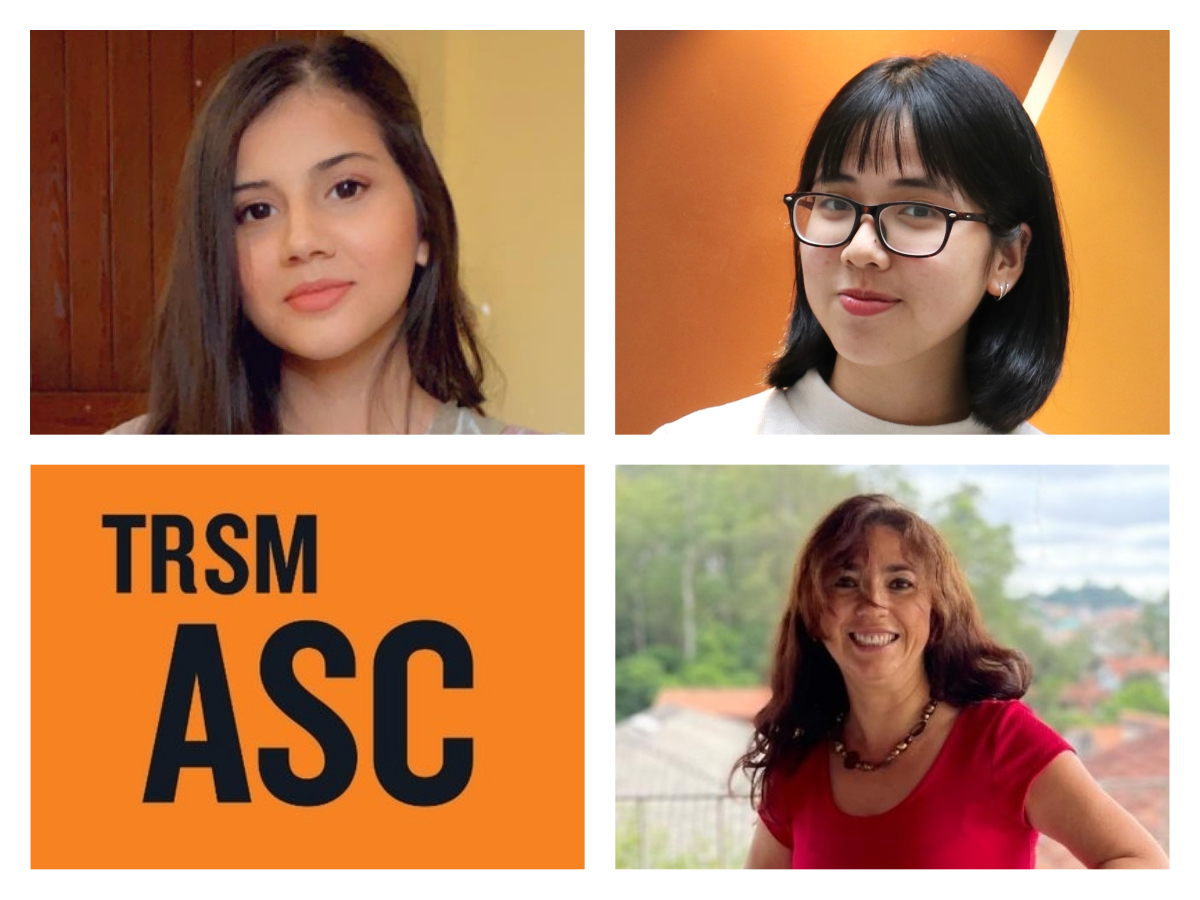Supporting Ted Rogers School students from around the globe

Students at the Ted Rogers School of Management have for many years had ready access to peer academic support to help reach their academic goals, but during COVID, that support has in some cases come from across the globe.
This semester, three highly-committed Ted Rogers School students working at the Academic Success Centre (ASC) have offered support to fellow students in Canada, even though -- for various reasons -- circumstance meant they were offering that help from home in Pakistan, Vietnam and Brazil.
Academic Peer Helpers (tutors) support their peers’ development of confidence with course material and learning strategies, and also encourage students to develop self-regulation strategies to thrive academically.
“It's great that the students are able to stay where they feel safe and still find ways to engage with their peers and support fellow Ted Rogers School students,” says Sandy Carpenter, Student Success Facilitator at ASC. “It was tricky getting the technology to them to support their tutoring work, but they were nimble and collaborated with us to help that along. I am always so thankful for the wonderful work our tutors do and how passionate they are about supporting their peers.”
Third-year Accounting & Finance student Aleenah Hassan started working as an Academic Peer Helper at the beginning of the Winter 2021 from Pakistan, which has a 10-hour time difference from Toronto. She returned to Pakistan in May 2020 because it was an unpredictable time with the COVID-19 pandemic and because she started feeling homesick being away from home for the first time.
When Hassan initially moved back to Pakistan last year, she found it hard to manage time zones in Canada and Pakistan, but this semester she has better organized herself and makes sure to also add time in for herself during the day.
“I try my best to keep a healthy routine with occasional outdoor activities and exercises,” Hassan explains. “On the busier weeks, it does get a bit difficult keeping track of the time according to the different time zones, but I plan a different activity for the weekends and catch up on my sleep.”
“I’m really enjoying facilitating fellow students and giving them tips to study online, as well as helping them adjust to these challenging times,” says Hassan. “I love meeting new students and hearing their different stories, and I’m so glad to be a part of this team that aims to make a welcoming environment for all students and boost their confidence through facilitation.”
Third-year Hospitality & Tourism Management student Casey Vo has been working as a Academic Peer Helper with ASC for the past two months from Vietnam. Since school was going to be online for the Fall semester and she didn’t want to pay the expensive rent in Toronto, she decided to return back home in August 2020. The COVID-19 situation was also better in Vietnam so it was safer for her there.
Despite the 12-hour time difference, Vo says it’s not too difficult to do her work as an Academic Peer Helper because she also has school in the same time zone. “All my working shifts end at 2am at the latest, which is really accommodating of my supervisor. Plus, working 10 hours a week is completely doable,” she explains.
Vo points out that COVID-19 comes with challenges, but it also comes with great opportunities. “If we are in a normal situation right now, I wouldn’t be able to run across campus from a class in Kerr Hall to the ASC in less than 10 minutes for my shift,” she says. “I would have had to schedule my shift an hour later. Now I can easily leave a Zoom meeting and join another in just two minutes, which saves me a lot of time for other things.”
Vo says she has been able to juggle work and school in a different time zone by making a timetable for the entire term so she can use her time logically. While the significant time difference can create some challenges, she tries not to compromise her health. “I had to alter my biological clock a little bit,” she explains. “Instead of getting a full seven to eight hours of sleep at night, I break it down to two to three naps a day (for two to three hours each). I think of the nap as a little break, and we all deserve a break!”
Fifth-year Business Technology Management Co-op student Ana Paula Lima has been working as a Peer Academic Coach since Fall 2019. She went back home to Brazil this past December to spend time with her aging mother and to escape some of the loneliness caused by the pandemic. While she does have friends in Toronto, the COVID restrictions made it difficult to physically meet with them.
Thankfully for Lima, there is only a two-hour time difference in Brazil, so it doesn’t interfere with work or school. “To avoid time conflict or time zone confusion, I left my laptop with Toronto's time and my cellphone with Sao Paulo's time,” she explains. “I found that having both times make everything clear.”
Lima has really enjoyed working as a Peer Academic Helper. “I like helping others and it is a great opportunity to be motivated and in the school spirit,” she says.
While the pandemic has been very difficult for many people, Lima also sees it as an opportunity to spend time with my family. “I am still adapting to working and studying from home, but I do enjoy the advantages of working from home,”
All three students hope to return to Toronto in the spring or summer when it is safe to do so.